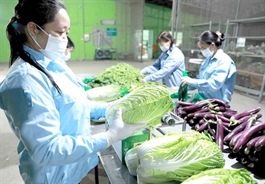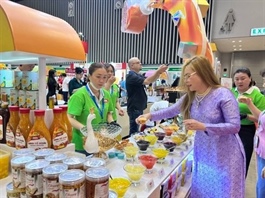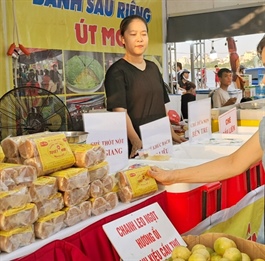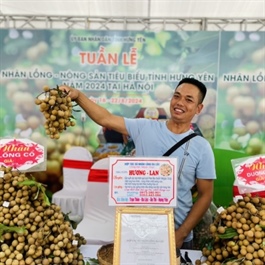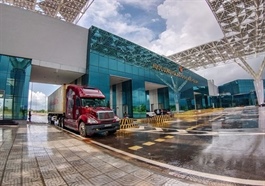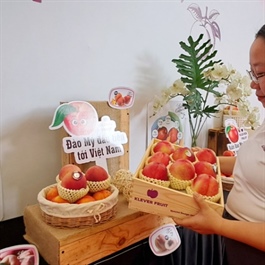Vietnam’s F&B market exciting for expanding Chinese chains
Vietnam’s F&B market exciting for expanding Chinese chains
Experts warn that Vietnamese food and beverage businesses may face significant challenges due to the formidable economic power, efficient supply chain management, and trend-setting abilities of Chinese competitors.

Having only entered the Vietnamese market late last year, Chinese coffee chain Cotti Coffee plans an aggressive expansion in Vietnam into next year as part of its strategy to reach 20,000 stores globally in 2025, according to Jen Yang, the company’s representative.
“We have already opened nearly 10 branches in Hanoi and Ho Chi Minh City,” Yang told VIR last week. “To build brand recognition and support our market expansion, our branches in Vietnam will use award-winning arabica beans recognised by the International Institute of Coffee Taster, consistent with our offerings in other markets. Additionally, we aim to maintain competitive pricing, positioning ourselves below Starbucks and several Vietnamese coffee chains.”
Cotti, which boasts over 6,000 outlets in China, also has a presence in challenging markets like Canada, Australia, and the UAE.
According to economic expert Le Xuan Nghia, many Chinese food and beverage (F&B) businesses like Cotti Coffee have a tremendous competitive edge over Vietnamese enterprises, fuelled by robust domestic market strength and strong government support.
“With a vast domestic market and international expansion capabilities, along with government-backed policies, Chinese companies benefit from large-scale production, low costs, and the ability to maintain competitive pricing. These factors not only allow them to easily penetrate the Vietnamese market but also overshadow local businesses on many fronts,” Nghia said.
“Without timely measures, Vietnamese F&B companies may find themselves at a disadvantage, gradually losing market share to their Chinese counterparts,” he warned.
Nguyen Tan Viet, chairman of the Food and Beverage Vietnam Association (FBA), highlighted the efficient supply chain and strong research and development (R&D) capabilities of Chinese groups.
“China boasts a comprehensive and efficient supply chain, from raw materials to transportation and distribution. This not only helps to cut costs but also enables Chinese companies to respond more swiftly to market fluctuations,” Viet said. “In contrast, Vietnamese companies may struggle to maintain a stable and efficient supply chain, particularly when relying on imported materials or technology.”
Chinese companies also often invest heavily in R&D, allowing them to quickly launch new products aligned with market trends. Meanwhile, Vietnamese businesses may find it difficult to keep up with this innovation due to limited resources and investment in R&D, Viet added.
Despite a recent decline in the number of existing stores, Mixue, a company offering products such as tea, milk tea, and ice cream is a familiar example of how a Chinese company can expand and dominate a market, having opened 1,000 stores across Vietnam in a variety of provinces in 2023. With a franchise strategy, the brand maintains a strong presence on most central streets in Hanoi.
According to Nguyen Dinh Cung, former director of the Central Institute for Economic Management, Chinese F&B companies have established highly successful business models, and for Vietnamese companies to catch up, they must precisely understand what their competitors are doing to build a solid foundation before innovating and developing further.
“Vietnamese companies should emulate the Chinese by focusing on R&D investment, which leads to market understanding and, as a result, makes it easier to achieve a strong market presence through large-scale and effective marketing strategies,” Cung said. “Moreover, with a deep understanding of the market, companies can create and spread new consumer trends, the most effective method to dominate the market before competitors can adapt.”
Additionally, he believes that one of the keys to the success of Chinese companies lies in their efficient supply chain. China has heavily invested in advanced technology and management processes, optimising the entire supply chain from production to distribution, reducing costs, and increasing the speed and accuracy of bringing products to market. He suggested that Vietnamese companies should pursue technological innovation to remain competitive.
“Vietnamese companies need to innovate more vigorously. Investing in modern technology, improving supply chain management, and fostering creativity are crucial factors to maintain a strong position in the industry and not fall behind,” Cung added.
However, even if Vietnamese firms wish to emulate these practices, they must have the necessary conditions to do so. Therefore, Viet from the FBA hopes that the government will play a larger role in the sector’s development through more active support policies for businesses.
“Currently, the Vietnamese government has financial support programmes for F&B companies with R&D projects, as well as technology innovation, such as the National Technology and Science Development Fund. Businesses are also supported when they obtain certifications for food safety, which help enhance product value. However, I still hope for additional policies to improve logistics infrastructure, aimed at reducing costs and increasing efficiency in F&B product distribution,” Viet said.




